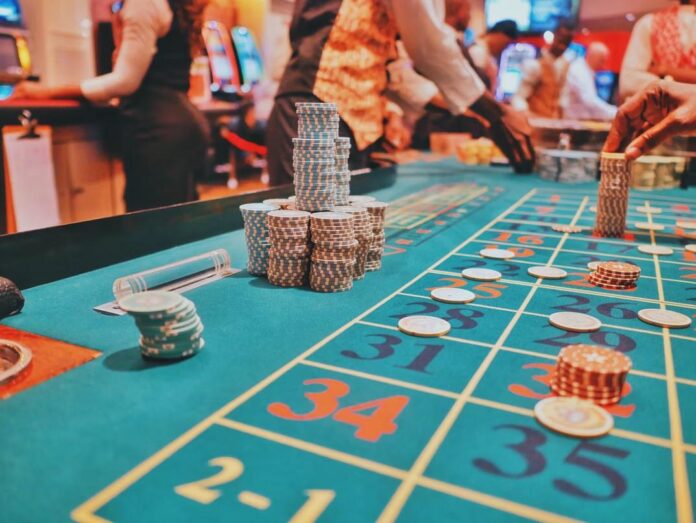Game trading has become a highly lucrative affair all over the globe. The UK is one of the countries that allow games trading. In this article, we will see how game trading came into existence in the UK.
First off, let’s talk about game trading. What is game trading? Game trading, in simple terms, is the purchasing and selling bets. A game trader’s primary goal is to purchase cheap bets and trade them at a high rate. Even in sports tournaments, different ads promote sports trading. For a punter to earn in sports trading, they must know the theory very well.
So, how did game trading come into existence in the UK?
Stakes in the 1600s
Games of chances have existed with humankind in different nations. The 1600s is the beginning step for game gambling. The earliest form of gambling was the casino. During that time, the casino institutions had Italy as their origin.
Traders or merchants, as people called them at the time, would travel the world with their wares and games of chance to play. The games these merchants initiated were card games, and in Italy, there was a rage for these card games.
Italy’s casino acceptance was peculiar to their nation. UK casinos for betting were largely nonexistent, mainly due to a fierce church crackdown. Nevertheless, The UK still had bettors with an unwavering love for wagering. They couldn’t do card games, but they got creative. It was that creativity that established the foundations for sports trading and gambling.
Horse racing in the 1700s
So, for the UK people, a casino was not an option. They looked around them for what could be, and they got one. Horses. Before the invention of vehicles, horses operated as a means of transportation. In the 1500s, horse racing became a thing in the UK.
Horse racing evolved to the point that organizers built different tracks all over the UK. Initially, the structure primarily used for horse racing was a two-horse race. Wagering involved bettors betting on the would-be champion among the two horses.
With time, the racetrack developed into one that could accommodate numerous horses.
Also, with this development, bettors increased in numbers. Betting was essentially primitive during those times, with only two wagering choices available for horse races. You could only bet on the favorite horse to win or on others which organizers called the field.
At least, this was before the legendary bookmaker created the odds system as we know it today. Ogden created a system of spreading out odds among horses whereby the horses had an equal winning chance. Ogden didn’t stop there. He wanted to have a piece of the action without necessarily placing bets himself.
Keeping it a secret, Ogden began to add extra to the odds to serve as his own profits. If Ogden calculated a 7/1 odds, then he would promote a 9/1 odds to the public. The difference was his profits, so sports trading, as you know, and love came into existence.
Debt collectors in the 1800s
The 1800s was a landmark in sports trading where the staking took place at the racetrack with great risks. Also, outside the horse racetracks there were bookies collecting bets. However, the risks were enormous.
The government wasn’t regulating bookmaking at this point, and wagering was pretty much a cutthroat affair. For instance, If a bookmaker fabricated something, finding out may take days before people discovered the lie. At that time, the bookmaker would have vanished.
Similarly, when game traders or bettors placed a bet and maybe couldn’t make the payment, the consequences could be life-threatening. Furthermore, sports trading and betting weren’t in any way a decent thing to do. This was because it lacked legislation at that time. It was just each individual for himself.
Game trading and betting first law.
The next half of the 1800s started with the Victorian era taking a particular disgust at betting.
The parliament enacted the first gambling law in 1845. Parliament passed to discourage people from game wagering, letting them know it wasn’t a legitimate affair. Interestingly, instead of the enacted law accomplishing its purpose, it cleared the air on betting.
People realized that while they couldn’t enforce betting as a contract, it wasn’t a criminal act.
So, people began to use homes as gambling cottages and casinos. Immediately after the betting law in 1845, the wagering homes rapidly heightened.
1853: A Sharp Return to the Horse Race Track
After the rise in betting homes, parliament created another act in 1853 to deter the harm the earlier one had done. This law proclaimed that no house should for any reason entertain any wagering action. It also announced that no one could own or use a property for such betting purposes.
The result? People pivoted to the horse racetracks, daring the risks

Game Trading And Wagering Thriving In The 1920s
In the UK, the game of horse racing wagering continued to expand. This led to the introduction of other games. Therefore, in 1923 and 1926, pools for football and greyhound racing came to be.
This, of course led to the advancement of games trading and wagering. Greyhound opened in the UK with the establishment of the Manchester-based Belle Vue Race Track.
The above sports betting, including horse race wagering, were the approved sports wagering in the UK prior to 1960.
1960s Legal wagering
The 1960s was a crucial period in the history of games trading in the UK. It was at this moment that a wagering law that all bookies, both legitimate and illegitimate, allow the people to partake.
Laid down legislation was made to enable people to engage in it responsibly. Casinos also became fully recognized in the UK in this era.
Conclusion
Games trading has a rich history in the UK. What you do easily results from dogged efforts from people collectively. You owe it to them to wager responsibly.































